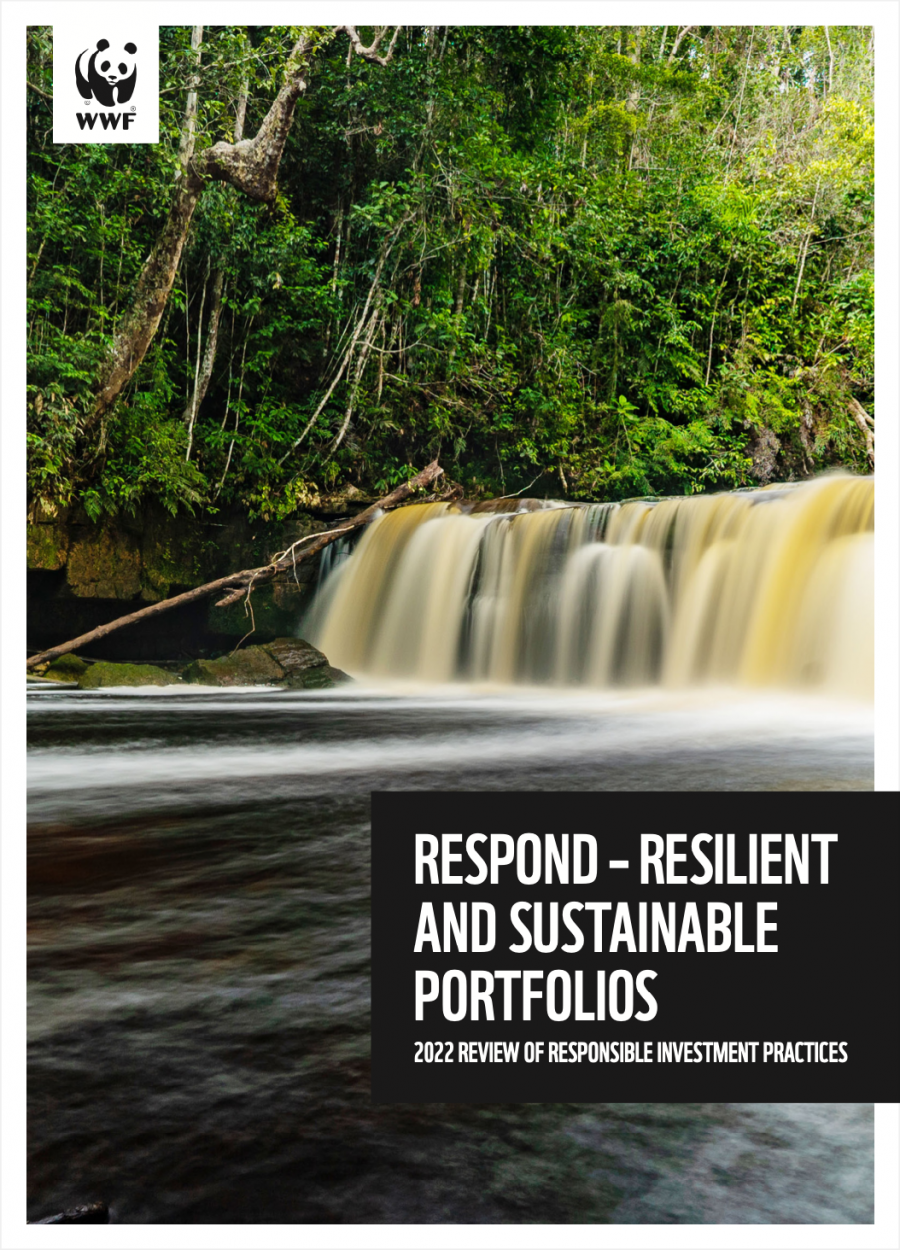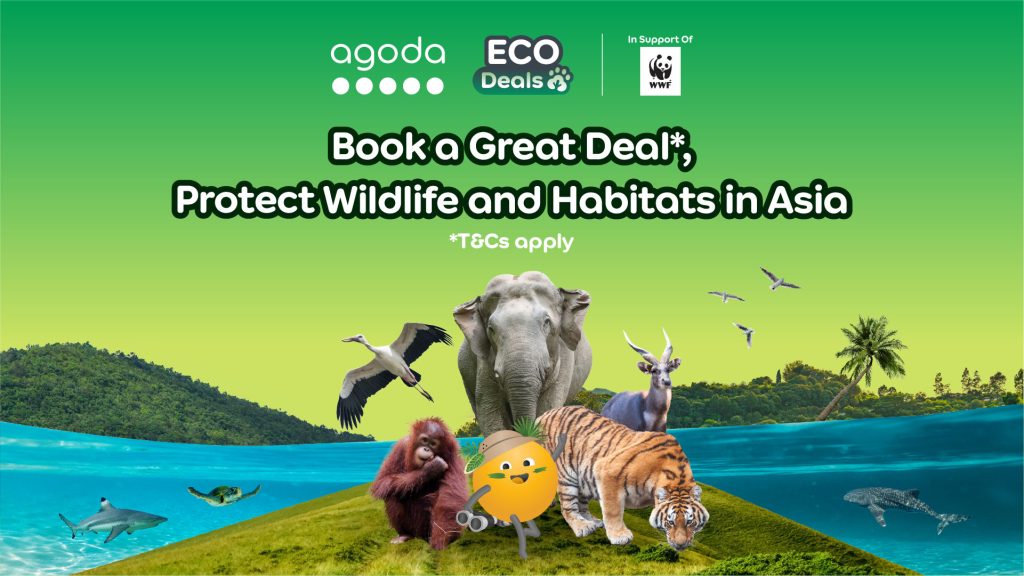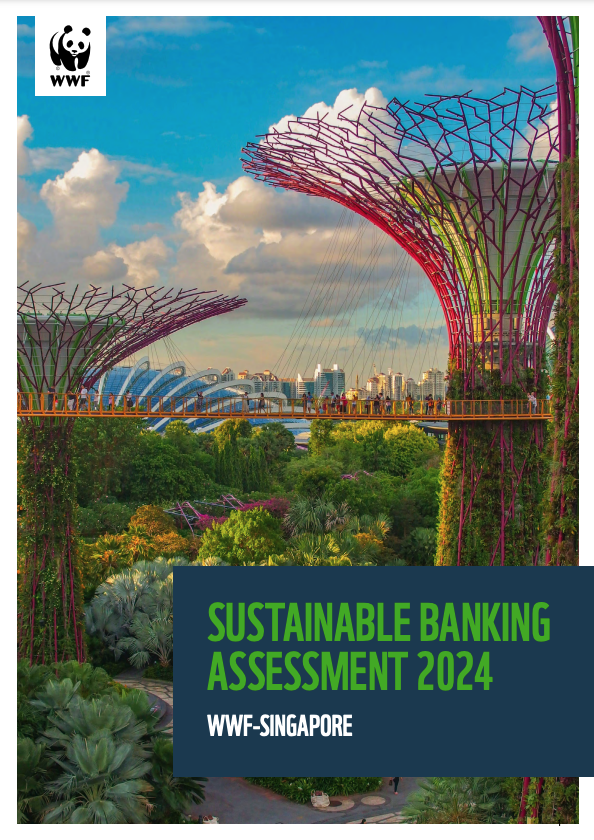RESPOND, WWF Singapore’s annual report on responsible investment practices, has revealed that Japanese asset managers substantially narrowed the gap when it comes to responsible investment practices, with Europe still leading the way.
Across Asia, more asset managers are taking proactive steps towards incorporating sustainability into their investment management practices.
SINGAPORE, February 9, 2022 – Today, the World Wide Fund for Nature Singapore (WWF-Singapore) has released the 2022 findings of RESPOND (Resilient and Sustainable Portfolios that Protect Nature and Drive Decarbonization), its annual report on responsible investment practices. It reveals that Asian asset managers are advancing their sustainable finance practices year-on-year, with Japan closing the gap with Europe.
Based on the latest RESPOND assessment, which measures the extent ESG factors are integrated into six key areas namely Purpose, Policies, Processes, People, Products and Portfolio, average scores are lower (58%) than the previous year (64%). This is attributable to the introduction of new qualifying entrants from Asia that are at a relatively earlier stage in their ESG integration, as well as the introduction of more stringent criteria in line with ongoing developments in global ESG guidelines and standards.
The key year-on-year findings of the RESPOND 2022 framework based on regions are as follows:
- The average European score is 74%, which remains largely unchanged from 2021’s RESPOND
- Japan’s score is up at 59%, an increase of 7% from last year’s score of 52%, demonstrating rapid improvement
- China’s score is at 29%, which puts the country slightly behind the rest of Asia at 31%
As RESPOND continues to add new asset managers; as a result of new qualifying managers, 10 new asset managers, 4 from China, and 3 each from Singapore and India have been added to the panel for assessment. In total, the report examines the ESG performance of 40 asset managers, with 18 asset managers based in Asia and 22 asset managers based in Europe. To qualify for assessment under the RESPOND framework, asset managers must be signatories to the Principles of Responsible Investment (PRI) and have minimum assets under management of USD 200 billion for European managers and USD 20 billion for Asian managers.
The improvement in the average scores for the Japanese asset managers both in absolute and relative terms as well as the higher number of Asian managers now qualifying for assessment under RESPOND, suggest that an increasing number of Asian managers are increasing their awareness of, and commitment towards responsible investing practices.
WWF-Singapore’s analysis has found that all 40 asset managers have public disclosures about their approach to sustainability and have acknowledged that investment performance can be affected by ESG factors. Further, 37 managers publicly support the Taskforce for Climate-Related Financial Disclosures (TCFD) recommendations. In terms of policy, almost all (38/40) asset managers have a responsible investment policy or an equivalent section in their investment policies and 37 of them have voting policies and engagement policies. That said, beyond the high level of public acknowledgement of the importance of ESG factors in investment management, and policy-setting, the extent of follow-through implementation on these acknowledgements in the form of active engagement, stewardship practices and science-based target setting, have been more varied across the region and from manager to manager in 2022.
After ESG commitments are made, challenges remain for actual implementation
The first instalment of the Sixth Assessment Report published in August 2021 by the Intergovernmental Panel on Climate Change (IPCC) clearly highlights that due to human activity, the earth’s climate has been warming at an unprecedented rate. The global average temperature has already increased by 1.2˚C above pre-industrial levels and this may increase to 2.4˚C by 2100, unless there is greater concerted effort to carry out the climate pledges under the Paris Agreement. In this regard, 36 of the asset managers have a policy or statement that climate change is incorporated into investment decision-making.
The assessment also suggests possible challenges faced by asset managers to match their extent of actual ESG implementation, with the scope of their mission statements, as well as with the latest developments in climate science. For instance, despite the vast majority of the asset managers publicly supporting TCFD recommendations, only 9 managers convey their expectations to all investee companies to similarly align to such recommendations and to set science-based targets. Even among the asset managers themselves, only about a third or 14 of them have set science-based targets, namely decarbonisation strategies that are in line with a 1.5 degree scenario. Investing with a sustainability mindset should include an assessment of the extent of environmental impact arising from one’s investments.
While more than half of the asset managers routinely assess external ESG risks on their portfolios, only 13 publicly disclose the environmental impacts from their investments. The notion of environmental impact assessment and reporting is based on the concept of double materiality, which has been adopted under the European Union’s Sustainable Finance Disclosure Regulation (SFDR), requiring the asset manager, in addition to disclosing how sustainability risks affect their investment process and performance, to disclose sustainability impacts from investments gains.
WWF-Singapore’s Vice President of Asia Sustainable Finance, Ms. Aveline Chan, said, “Amidst growing awareness of the important role investors play in supporting a shift to sustainable development, and with the rising number of financial signatories making climate commitments and joining various green initiatives, it is critical that investors are empowered and committed to deliver on their ESG goals by going beyond managing the ESG risks in their portfolios, to also create positive and measurable environmental impact from their investment activities.”
WWF-Singapore’s recommendations for effective ESG implementation to deliver positive environmental impact
RESPOND makes recommendations on the steps asset managers may take to incorporate ESG factors into their investment and engagement activities to help deliver tangible and positive change to address today’s climate crisis. Recommendations include:
- Setting climate commitments that are credible and aligned with the latest climate science, by targeting to reach net-zero by 2050 or sooner, in line with global efforts to limit warming to 1.5°C
- Increasing accountability and company-wide alignment on net-zero targets by having board oversight of these commitments
- Developing more detailed strategies underlying these climate targets that include interim and short-term targets to ensure greater chance of achieving the longer term net-zero goals
- Adopting science-based tools and methodologies when assessing investee companies’ sustainability impacts and exposure to sustainability risks, and the communication of expectation on investee companies to similarly set science-based targets and adopt science-based risk management methodologies.
- Disclosing ESG performance and environmental impacts for all funds under management
Beyond climate change, asset managers’ level of commitment to other environmental risks such as nature loss, water risk and depletion of marine resources, has varied across the regions. 25 asset managers have a policy or statement on water risk while 26 have a policy or statement on deforestation and biodiversity loss. Out of these, the majority are European managers, with only 5 Asian managers having a policy or statement for either.
Managing these other environmental risks is a key component to controlling the level of GHG emissions and alleviating the current climate situation. The report addresses this aspect through recommendations that include:
- Incorporating issue-specific policies beyond climate change
- Asset managers should address such issue-specific risks within actual policies with clear explanations on how such risks are incorporated into investment and portfolio monitoring processes, rather than as general statements in publications
- Encouraging investee companies to acquire the requisite industry certifications and adopt internationally recognised sustainability standards where relevant to their businesses.
- Assessing and reporting of environmental impacts from investments to include metrics outside of carbon.
The RESPOND report is based on a TCFD-aligned framework developed by WWF to help asset managers strengthen their responsible investment practices to meet their clients’ expectations both now, and in the future. The report accompanies an update to the RESPOND online interactive platform that lets stakeholders explore the analysis in more detail. By using the RESPOND tool and framework, asset managers can better play a pivotal role in the transition towards a sustainable and net-zero economy.
… ends …
About the report
WWF-Singapore’s 2022 report on responsible investment practices ‘RESPOND’ is an update of WWF-Singapore’s 2021 ‘RESPOND – Resilient and Sustainable Portfolios’ report. The report benchmarks 40 asset managers in Europe and Asia against WWF’s six-pillar responsible investment framework (Purpose, Policies, Processes, People, Products and Portfolio).
Materials reviewed as a part of this analysis include the latest annual, sustainability, and RI reports; public statements and policies; investor presentations; press releases; and other information published on asset managers’ websites by 31 October 2021, in addition to 2020 PRI Transparency Reports. The 2021 PRI reports were not used as the publication has been delayed due to the development and launch of a new pilot reporting framework. For more details, please refer to this statement by the PRI.
About the RESPOND tool
RESPOND (Resilient and Sustainable Portfolios that Protect Nature and Drive Decarbonization) is an interactive online tool developed by WWF to help asset managers improve portfolio resilience and alignment with a low carbon and sustainable future through the application of science-based approaches to responsible investment (RI). The tool allows users to explore how leading asset managers are implementing RI and also understand opportunities for further leadership. It is based on a WWF framework[1] that represents a best-practice architecture for responsible investment and is aligned with the recommendations of the Task Force on Climate-related Financial Disclosures (TCFD) and the Principles for Responsible Investment (PRI).
About WWF-Singapore
WWF is one of the world’s largest and most experienced conservation organizations, with over 5 million supporters and a global network active in more than 100 countries. WWF’s mission is to stop the degradation of the planet’s natural environment and to build a future in which people live in harmony with nature. As one of WWF’s international hubs, WWF-Singapore supports a global network spanning over 100 countries. We work to meet key conservation goals, such as tackling deforestation and illegal wildlife trade, as well as promoting food security, sustainable finance, and sustainable consumption.
WWF has worked with the finance sector for more than a decade via innovative collaborations that seek to integrate ESG risks and opportunities into mainstream finance so as to redirect financial flows to support the global sustainable development agenda. Our approach to sustainable finance leverages WWF’s conservation expertise in combination with our skills and experience in the finance sector to create innovative and collaborative ways of delivering better environmental and social risk management and new business opportunities to financial institutions. For more information, visit wwf.sg.
WWF-Singapore would like to acknowledge the Global Environment Facility (GEF) for providing financial support for this report, as a part of the Good Growth Partnership (GGP). The views expressed in this publication are the sole responsibility of the authors and do not necessarily reflect the opinion of GEF or GGP.
For more information, please contact:
- Aveline Chan, WWF-Singapore Sustainable Finance, achan@wwf.sg
- Nicola Powell, Director, Klareco Communications, wwf@klarecocomms.com















